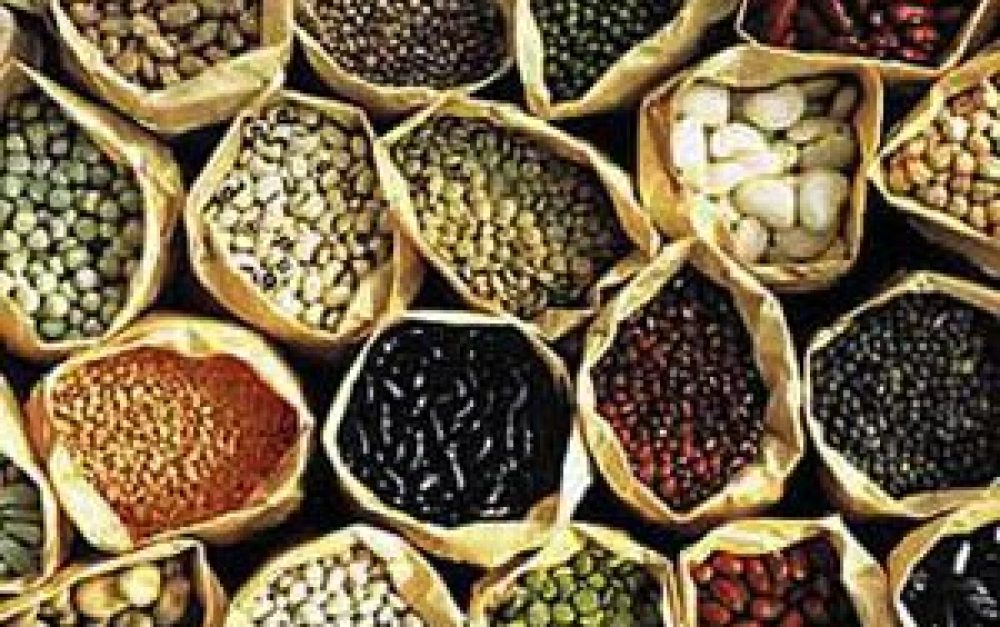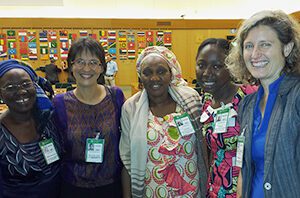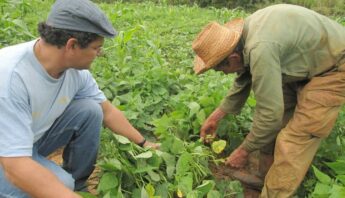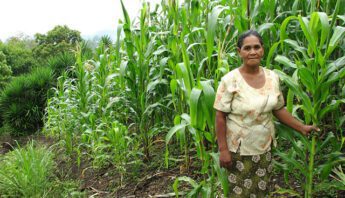This is a global Week of Food Action, and as part of the push, a broad alliance of Christians from around the world has released a set of recommendations for ending world hunger.
Despite best attempts by the chemical industry to use "feeding the world" as moral justification to sell pesticides and proprietary, genetically engineered (GE) seeds to farmers worldwide, members of the Ecumenical Advocacy Alliance are calling instead for food and farming systems that embody Christian values of fairness, care for creation and sustenance for generations. Rather than pesticides and GE seeds, this global network of Christians calls for investment in agroecology. Why? Because it works.
Stories of success
Given the pressing realities of a growing population and increased meat consumption, along with the intertwined challenges of a changing climate, dwindling fossil fuel resources, and water contamination and scarcity, we need a resource-efficient food and farming system geared toward resilience. Agroecology — combined with infrastructure for food storage and market access for small farmers — is an approach to both sustain farmers and provide food to people, even amidst the challenges we face. According to the United Nations Special Rapporteur for the Right to Food:
"Agroecological approaches can provide enough food for us all, and small-scale farmers can double food production within 10 years in critical regions by using agroecological approaches."
Here are just three of many examples of agroecological farming systems profiled in the Ecumenical Advocacy Alliance report, Nourishing the World Sustainably: Scaling up Agroecology, that help us understand the immense potential of this applied science.
- In southern Brazil, a center that supports small farmers (CAPA) has introduced agroecology as a counter to a mass rural exodus from pesticide-laden tobacco plantations in the region. CAPA teaches farming methods that don't rely on synthetic pesticides or fertilizers, and emphasizes seeding the formation of farmer cooperatives. In the late 1980s, CAPA lobbied the local government to create institutional markets and the regional government began buying food for canteens, schools and social programs from local agroecological farms at a 30% higher price. This program was scaled up for the whole country as part of the Zero Hunger Program.
- In Sri Lanka, the Future In Our Hands Development Fund has worked with farmers in the Uva Province since 2007. People in the province were facing excessive use of pesticides; damaged ecosystems and soils from industrial agricultural monocultures; malnutrition; food insecurity; and destruction of family farm health. Since work focused on agroecology began, 600 farmers have shifted toward such approaches and have benefited from improved soil water-holding capacity, cleaner ground water, reduced soil erosion, higher productivity and biodiversity, improved self-esteem within the community and increased satisfaction in farming.
- In Peru, agroecology and farmer-to-farmer education has enabled 50,000 families to significantly improve their livelihoods. As an example, a "local potato producer in the village of Chahuay, Cusco used to have to travel for more than a day to the closest market to buy his vegetables. Now, he grows his own vegetables, without use of chemicals, and sells to his neighbors."
Pulling some tools out of the toolbox
As a Christian, I believe in prayer and reflection on sacred texts as key to guidance for how to live according to our values and faith as best we can (more on that in another blog!). At times, we have veered wildly and dangerously off course, leaving a profoundly damaged wake, intentional or not.
Too often, our passionate Christian call to end global hunger, using whatever tools be necessary, undermines the very intent to ensure that the world is fed. When it comes to our food system, it's just not the case that all the tools can stay. Agroecological approaches cannot happily thrive alongside pesticide-reliant GE technologies. Industrial agricultural technologies, controlled by a handful of multinational chemical corporations, undermine the very ability of agroecology to function. As the EAA report summarizes:
"Replicating industrial-scale monocropping and food production using fossil-fuel based synthetic inputs throughout the world is neither desirable nor possible."
When we remember the root causes of hunger in the world as poverty and inequality, we realize how quickly reliance on pesticides and proprietary GE seeds undermines our intent to end global hunger. While seduced by promises of productivity, ease and yield, the products held by the likes of Monsanto have failed to deliver, and in the end, undermine key tools needed to end hunger: farmer ingenuity, equitable distribution of food, and the biodiverse local soils and ecosystems upon which life depends.
Investing in what works
Small farmers grow 80% of our food worldwide, and it's time to make smart investments to ensure that such farmers and agroecology are at the center of food system transformation. Here are highlights of the Ecumenical Advocacy Alliance recommendations:
- Invest in research and farmer-to-farmer networks focused on agroecological approaches, building on traditional knowledge and best practices that are already working and have significant potential.
- Ensure policymakers recognize the central role of small farmers in feeding the world, and accordingly, shift policy to ensure investments and practice that supports the success of small farmers.
- Watchdog and address the negative impacts of undue corporate influence on agricultural policy and practice, including the "unconstrained promotion of dependence on proprietary technologies" such as GE crops and chemical fertilizers.
- Reduce food waste throughout the chain by improving access to local storage at the farm gate and decreasing waste at the point of consumption.
Take Action » Here in the U.S., there are many ways to be part of food system transformation this week, and into the future. Here are two things you can do right now with PAN to be part of the change:
- Join us to stop USDA from fast-tracking the pipeline of GE seeds.
- In California, help ensure the passage of Proposition 37 to label GE foods, a first step in helping us know which tools we are supporting with each food dollar we spend.







